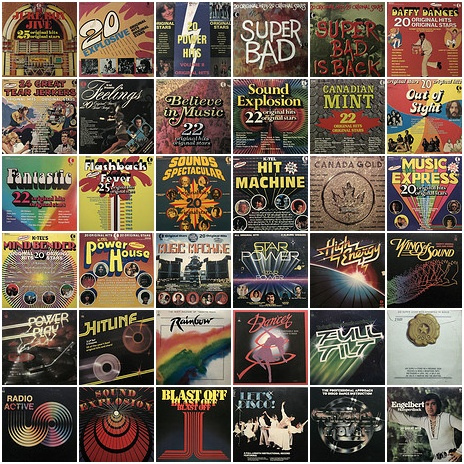Videos by American Songwriter
I don’t know know about the rest of you, but I get very weary of singer/songwriters who are ignored in their time, suffer untimely deaths and then, when it’s way too late, find themselves with an adoring posthumous cult. So, as to that, I’ve written a humor piece about a luckless English songwriter, who is now beloved beyond all reason, now that he is safely dead and can no longer be ignored. You may recognize traits of your favorites in the story of one Malcolm Blight. But this is a work of fiction. So, please, no calls from lawyers. Or dependents!”
This month sees the re-release of the two albums recorded by legendary English singer/songwriter, Malcolm Blight. Mistaken by 70s listeners as just another folkie, by folkies as just another Dylan and by his own band as just another roadie (toward the end he was driving the van and serving the scones), Blight has since been recognized as a total original. Always out of step, he died in 1981, of middle-age. Now, we have a chance to re-assess the music and persona of Blight.Without the nuisance of the man himself getting in the way.
Malcolm Whitbread Blight was born in 1945. In Swinburne on Shelley, in the township of Hereford, the village of Clyde, within the school district of Hotchkiss, not far from the Tyne, within walking distance from Harrods, in a small stone cottage. Blight’s father, a dairy farmer, was also named Malcolm. This created an identity crisis and sense of inferiority in the youngster that he could never quite shake. When Malcolm senior began to do his son’s homework and was offered a scholarship to Cambridge, as a result, this really set the boy off. This trend continued into the 70s, when Malcolm senior began showing up for gigs instead of his depressed son. The crowds were double the size of anything young Malcolm could draw and soon his father recorded a live album that went gold and was nominated for a Grammy.
Betty Blight, Malcolm’s mom, instilled a love of music in him at an early age. She taught the boy all about the American blues and was deeply committed to them. Malcolm loved this about her. Until his mother suffered her own identity crisis. At 34, Betty grew delusional and told everyone she was really Bessie Smith. This amused young Malcolm no end. Until the night his mother crept into his room and belted out, “Gimme A Pigsfoot And A Bottle Of Beer.” Betty was sent to a local hospital where she began treatment. Not for mental troubles but nodes on her throat, due to her singing style. At the hospital, she was discovered by a talent scout and also put out a record that went gold. This made young Malcolm Blight more determined than ever to make it.
After a stint in the obligatory electric blues band (their actual name), Blight met up with producer Hampton “Glammy” Heath. Who, although himself just out of a mental hospital, found Blight so promising, he signed him as a solo artist. Heath, however, was delusional and had signed 27 others in a two day pass he’d gotten from the hospital. Since many of these signings were made at knifepoint, it took three solicitors months to clear everything up. When it was done, Glammy and Malcolm decided to work together, after a week of intense discussion. Mostly about which anti-psychotic medication worked the best.
Over the course of 12 days, Blight laid down the tracks for his two classic records, “Foundry Soot In My Earl Grey Tea,” and “Breakfast Or Suicide?” The latter so beloved by Morrissey, that he nearly covered one of its songs. Except he didn’t.
And what songs! From the mournful strains of “Me Plimsouls Are Leaking,” with its intricate symbolism (sneakers represent the human spirit), to “Clive Is No Laddie Buck!” (about a two-faced friend) to the often misunderstood, “I Love Me Fags,” Blight set the stage for several musical movements to come. From the confessional singer/songwriters of the 70s, to the British alt. rock of the 80s. Kids have also copied Blight’s habit of wearing a plastic raincoat at all times, no matter the weather. Which resulted in numerous cases of sunstroke, not to mention product liability suits leveled at his remaining family members.
Sadly, the reception of these two records, was as ill-fated as the music was superb. Blight went on disastrous tours, opening up for such mismatched musical acts as Uriah Heep, Mountain and Black Sabbath. Of course, part of the problem was, Blight thought that “opening up,” simply meant he should turn on the hall’s lights and let in the fans. And, many times, when he was to actually go on, he was back at the hotel watching Benny Hill. The nights he actually played, the fans listened raptly to him. Which only made things worse. After several shows he had rowdies backstage who quoted his lyrics word-for-word, as they beat him up.
More-and-more depressed, Malcolm Blight moved home, which offered little solace. His parents were now both big musical stars in their own right and he ended up having to to listen to their theories on writing songs and the difficulties of fame. Seeing a doctor for his emotional problems, Malcolm was then given an experimental drug, that had him up at 5, eating endless amounts of carrots and running around the family stable. It turned out later the physician was actually a horse doctor, who saw in Blight a chance for a celebrity endorsement. The doctor was given a six month suspended sentence. Blight’s last bit of fame came when he placed sixth in the derby at Epsom Downs.
With no royalties coming in and the British music scene moving toward Punk and New Romantic Music, Blight grew ever more despondent. Whether he meant to take his own life that cold English Day in 1981, or whether he accidentally overdosed, no one can say with certainty. Still on the specious medication, though, Blight’s last words were, “Mum, I could eat a barrow full of pippins.” Blight snorted once and died.
Since then, his stock has risen higher every year. There’s a biopic in development, indie bands reference Blight at every opportunity, Morrissey is still thinking about covering one of his songs.
There was a minor flap recently, when a commercial for a sports car used some of Blight’s music in the background. Malcolm senior still alive and well at 89, tried to sue the company for infringing on his son’s intellectual property. The car company countered by saying that Blight’s tunes came more under the heading of pseudo-intellectual property. Blight senior agreed wholeheartedly. And sold the company one of his own songs in the bargain. Blight himself, a quick witted man, would have loved the irony. But still, to the rest of us, one sad fact is horribly clear: it seems, that even in death, some guys just can’t get a break.













Leave a Reply
Only members can comment. Become a member. Already a member? Log in.